Sweden is sometimes regarded as the frontrunner when it comes to sustainability in general. And sustainable businesses particularly. This a pilot study to make it possible to compare the swedish business community over time. And also, to compare with entities outside sweden.
Allies and Centigo have created the Sustainable Business Outlook based on our study on Swedish sustainability, which was conducted in 2017.
Background and method
Allies and Centigo have created the Sustainable Business Outlook based on our study on Swedish sustainability, which was conducted in 2017. In the study over 100 of the largest companies and organizations in Sweden participated in a survey where they were asked about how far they have come with integrating sustainability into their business and operating models.
In the study we divided the participants into 6 categories. Rather than a industry based division, we chose to focus on the ownership structure to see if governance model and purpose has a correlation with their sustainability performance, namely:
- State-owned companies
- Listed companies
- Non-listed companies
- Co-operatives
- Municipal companies
- Administrative authorities
Main findings
The most important findings can be summarized as:
Swedish businesses and organizations are in a transition phase to becoming more sustainable and integrating the sustainability issues into the core business. There are vast differences in the results between the six categories, but also a wide span within the categories. There were top performers and laggards in all categories.
The main insight from the study indicates that state-owned companies and listed companies are the top performers in the overall result, which show us that the driving force to be sustainable can come either from the market or from the owners – and result in the same performance.
Almost three out of four of the largest companies and organizations in Sweden (74%) have changed their business model as a result of their sustainability efforts, compared to 65% in 2013*.
More than half of them (52%) state that their sustainability efforts have created positive economic results, compared to 35% in 2013*
The three most popular United Nations’ Sustainable Development Goals (UN SDGs) addressed by Sweden’s largest companies and organizations are: GOAL 13: Climate Action – 46% , GOAL 8: Decent Work and Economic Growth – 41%, GOAL 12: Responsible Consumption and Production – 39%.
In Sweden the state-owned companies and the listed companies have come the furthest in their efforts of integrating sustainability into their business and operational models. Out of a maximum score of 100 the state-owned companies got an index score of 78 and the listed companies an index score of 75.
Among the privately-owned companies’ co-operatives follow quite closely after the listed companies, with an index score of 70, whilst the non-listed companies are clearly lagging behind with an index score of 59. One thought as to why there is such a big difference between the listed and non-listed companies is that the listed companies have higher demands on transparency from the stock exchange, as well as having the eyes of the media and the public on them to a greater extent. It is somewhat surprising that the co-operatives saw themselves performing worse than the listed companies, when many of the co-operatives have a business idea that is very close to many of the core areas of sustainability.
Among the publicly governed companies and organizations the municipal companies at an index score of 56 are far behind the state-owned companies, and the administrative authorities are even further behind, managing a total index score of just 41. It is interesting that the difference between the publicly held companies and organisations is so big, especially the difference between the state-owned companies and the administrative authorities who are both controlled by the Swedish Government Offices.
One source of inspiration for our study was the MIT Sloan Management Review and The Boston Consulting Group report Innovation Bottom Line, which found that companies in developing countries more often change business models as a result of sustainability, when comparing the number of respondents that had changed their business model as a result of their sustainability efforts and the amount of respondents that could see a positive impact on their financial result. When we compared the answers from Sweden’s 100 largest companies to the same two questions, we found that the listed companies and co-operatives are the two categories that had come the furthest, whilst municipal companies and administrative authorities, again, are lagging behind.
The integration of sustainability into the business and organizational models of Swedish companies and organizations is currently showing a wide range of outcomes, some have created a long-term sustainable business model where sustainability is fully integrated into the strategy of the organization, whilst others have further to go.
Almost three out of four of the largest companies and organizations in Sweden (74%) have changed their business model as a result of their sustainability efforts, compared to 65% in 2013*. The co-operatives take a leading position in this regard, with 94% stating that they have changed their business model. The results of the state-owned, listed and municipal companies follow shortly after, scoring between 83% to 80%. The non-listed companies are behind in this aspect, with only 54% saying that they have changed their business model.
One source of inspiration for our study was the MIT Sloan Management Review and The Boston Consulting Group report Innovation Bottom Line, which found that companies in developing countries more often change business models as a result of sustainability, when comparing the number of respondents that had changed their business model as a result of their sustainability efforts and the amount of respondents that could see a positive impact on their financial result. When we compared the answers from Sweden’s 100 largest companies to the same two questions, we found that the listed companies and co-operatives are the two categories that had come the furthest, whilst municipal companies and administrative authorities, again, are lagging behind.
More than half of companies and organizations (52%) state that their sustainability efforts have created positive economic results, compared to 35% in 2013*. Listed and non-listed companies are ahead of other sectors in society, with 75% and 73% respectively saying that they see positive economic results from their sustainability efforts. This can be compared to state-owned companies and co-operatives, where only 50% say that they see that same result. Municipal companies and administrative authorities are further behind with only 40% of municipal companies and merely 17% of administrative authorities see their sustainability efforts having created positive economic results.
We found that 64% of Swedish companies and organizations are using the United Nations Sustainable Development Goals in their efforts to integrate sustainability into their organizations, which is very encouraging. State-owned companies and listed companies are ahead of the other categories also on this topic, and the municipal companies are behind. We went on to ask everyone who said that they were using the UN SDG which SDG:s they were addressing and found that the 3 most common goals to be addressed by Swedish companies and organizations were:
GOAL 13: Climate Action – 46%
GOAL 8: Decent Work and Economic Growth – 41%
GOAL 12: Responsible Consumption and Production – 39%
The popularity of goal 13 might be related to a sense of urgency in climate change and an importance for companies and organizations to at least appear to be taking some actions. For both listed companies, co-operatives and administrative authorities these were among the most popular goals to address. Both goals 8 and 12 are close at hand for many companies as they relate to the core of many businesses. Goal 8 was particularly popular among non-listed companies and co-operatives, whilst goal 12 was most popular among state-owned companies, listed companies and co-operatives.
Among the least popular UN SDGs were GOAL 1: No poverty (8%) and GOAL 2: No hunger (9%). This might be because they are distant to the core business of many large Swedish companies and organizations.
Other insights
Other facts from the study are summarized as:
83% of all businesses and organizations in Sweden has a person/function responsible for the sustainability efforts. All listed companies, 95% of non-listed, co-operatives and state-owned companies have a responsible person/function. For municipal companies and administrative authorities, the same figure is 79%.
In 44% of businesses and organizations the person responsible for sustainability efforts is a member of the management team. The category where it was most common was the state-owned companies where the figure is 61%, the least common was in non-listed companies (24%) and municipal companies (21%)
16% of businesses and organizations lack a sustainability strategy. Among administrative authorities 47% do not have a sustainability strategy, and 43% of municipal companies also lack a sustainability strategy. Based on these categories generally poor result in the study we find it unlikely that this is because they have fully integrated sustainability into their strategy. Instead we find it more likely that these organizations are so immature in their sustainability efforts that they have not even reached the stage where they have set a sustainability strategy, much less integrated sustainability into the organization’s long-term strategy.
19% say that the sustainability efforts have had an impact on the competence requirements when recruiting and further developing those in leading positions
Human rights and diversity are the two areas of sustainability where the participating businesses and organizations state that they still have a long way to go before they have implemented a systematic way of working with these issues. The listed companies have come the furthest in terms of creating a systematic way of working with sustainability and the administrative authorities have the furthest way to go still.
The environment, equality and diversity are the areas which most businesses and organizations approach from an opportunity perspective. Human rights, working conditions, anti-corruption and business ethics are approached by most from a risk perspective. The two noticeable exceptions from this is the non-listed companies who view working conditions as an opportunity, and the state-owned companies who approach the issues of the environment from a risk perspective.
85% of businesses and organizations have conducted a materiality analysis. All listed and state-owned companies that participated stated that they have done a materiality analysis. Only 44% of administrative authorities say the same.
The most commonly used international guidelines are GRI (59%) and UN Global Compact (55%). Listed companies are the most frequent users of international guidelines, e.g. 100% saying that they use UN Global Compact and ILO Declaration on Fundamental Principles and Rights at Work. The state-owned companies also use international guidelines to a high extent, e.g. 100% using GRI and 94% using UN Global Compact. The least commonly used international guideline was ISO26000.
64% of businesses and organizations use UN SDGs to support the integration of sustainability into their organizations. The most frequent users are state-owned companies (78%), the least frequent users are municipal companies (40%).
The most commonly used of the 17 UN Sustainable Development Goals was Goal 13: Climate action, the least used was Goal 1: No poverty
82% of businesses and organizations can see synergies in working with digitalization and sustainability
The most important stakeholders are employees, customers and owners.
The view on the importance of customers as a stakeholder varies between different categories. Most highly valued are the customers by state-owned companies and municipal companies. The customer is less important as a stakeholder group for listed companies, and far less important customers are for administrative authorities.
Questions for further studies
The study raised the following questions for more discussion and further studies
- Does capitalism actually drive authentic Sustainable Business? Listed companies rank highest, administrative authorities in the bottom.
- Why is not a publicly governed organization a guarantee for a sustainable organization?
- Why does administrative authorities show a wide spread of engagement despite of the government’s directives on Agenda 2030? It seems like it is up to the management team whether to address sustainability issues or not?
- Does a wide stakeholder view drive a good sustainable performance?
The view on the importance of customers as a stakeholder varies between different categories. Most highly valued are the customers by state-owned companies and municipal companies. The customer is less important as a stakeholder group for listed companies, and far less important customers are for administrative authorities.
How does your organization compare?
Are you interested in how your organization compares to the participants in the Sustainable Business Outlook in terms of human rights, diversity and 5 other sustainability perspectives? Take our survey and we will get back to you with the result!
The Sustainable Business Outlook
Are you interested in taking part of more of our results?
Read the report summary here!
Questions or comment, please contact:
Daniel, daniel@allies.se
Erik, erik.wottrich@centigo.se
The Sustainable Business Outlook was conducted in 2017/2018 by Allies and Centigo in cooperation with our partners Sustainable Innovation, RISE, Global Utmaning and Förebildsföretaget. Daniel Steinholtz (daniel@allies.se) was the responsible partner and Erik Wottrich (erik.wottrich@centigo.se) the project manager.
Found this article useful? Help us spread the word on social media:






